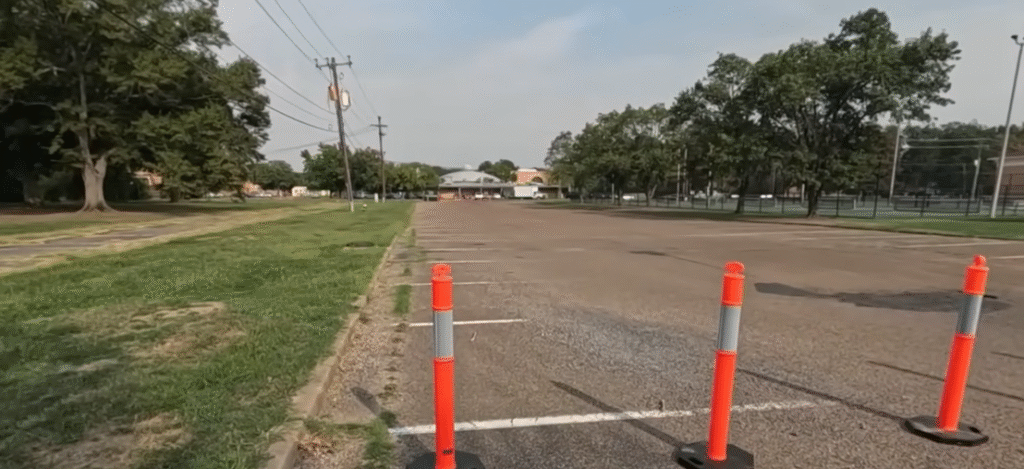Delta State University is firmly established in Cleveland, Mississippi, at the intersection of history, aspiration, and tenacity on Sunflower Road. Because Delta State’s presence extends remarkably similarly to how small institutions elsewhere shape entire regions, asking where it is transcends geography. This university has consistently demonstrated that small-town institutions can have a big national impact. It is especially innovative in the fields of aviation and athletics.
Delta State University – Key Information
| Attribute | Details |
|---|---|
| Name | Delta State University (DSU) |
| Type | Public University |
| Founded | 1924 |
| Location | Cleveland, Mississippi, United States |
| Address | 1003 W Sunflower Rd, Cleveland, MS 38733 |
| Campus Size | 332 acres (1.34 km²) |
| Colors | Green and White |
| Mascots | Statesmen (official), Fighting Okra (unofficial) |
| President | Daniel J. Ennis |
| Students | 2,716 (Fall 2023) |
| Acceptance Rate | 99–100% |
| Tuition Fees | $8,605 (2023–24) |
| Athletics | NCAA Division II, Gulf South Conference |
| Notable Alumni | Lusia Harris, Steve Azar, Buddy Stephens, Margaret Wade |
| Website | Delta State University |

DSU had modest beginnings when it was established in 1924 on the grounds of an old agricultural high school. However, its reach has significantly increased opportunities for students throughout the Delta over time, particularly for those from backgrounds where access to higher education was previously very limited. In comparison to more selective institutions, the nearly 100% acceptance rate may seem generous, but in reality, it works remarkably well to open doors that would otherwise remain closed.
Its identity is intricately linked to its athletic heritage. Teams, from the Statesmen to the Lady Statesmen, have proudly represented DSU on fields and courts. Lusia Harris, a trailblazer in women’s basketball whose impact extended well beyond the Mississippi Delta, continues to be the most recognizable figure. She was selected by the NBA, and her career was a remarkable example of how talent developed in Cleveland could have an impact on the entire United States. In the same way that Serena Williams inspired young Compton athletes, her story continues to inspire generations.
Another intriguing chapter is the Fighting Okra, DSU’s unofficial mascot. What started out as a funny student invention evolved into a very adaptable symbol that was used on social media feeds, T-shirts, and ESPN features. The Okra gave the students a sense of humor and identity that was both raw and incredibly genuine. It served as a reminder that university pride can occasionally be found in imaginative, boxing-gloved vegetables rather than always in slick, businesslike packaging.
DSU’s aviation program stands out as being especially advantageous. The university is the only one in Mississippi offering a degree in commercial aviation, and it has a fleet of Cessna and Diamond aircraft. DSU has made it much easier for local students to pursue international careers in flight by providing this program. The opportunity to become pilots is a very effective way for young Delta men and women to rewrite futures that were previously limited to their local communities. Notably, the aviation school has been likened to Embry-Riddle on a more manageable scale.
However, DSU has experienced difficult times that mirror broader social issues. Up until Shirley Antoinette Washington enrolled in 1967—a move that was both historically significant and especially groundbreaking for Mississippi education at the time—it was a segregated institution for many years. The racially diverse student body on campus today demonstrates how far the university has come in a short period of time.
The Bologna Performing Arts Center is a culturally resilient lighthouse. With orchestras, artists, and even Broadway tours performing there, Cleveland became an unexpected venue for international performers. Like the Kennedy Center, which brings the arts to Washington in a very localized setting, it is incredibly successful at bringing such cultural vibrancy to a small community.
In times of sorrow and resiliency, Delta State has also played a pivotal role. Trey Reed’s tragic death in 2025 made headlines across the country. Despite community voices pointing to deeper issues of justice and race, authorities declared it a suicide. It served as a reminder to the nation that DSU is closely linked to and not immune to larger American struggles. Like other universities that have faced social unrest in the past, the campus turned into a mirror of suffering and resiliency during those times.
In terms of academics, DSU is still growing. Its business, education, and nursing programs are highly regarded. With class sizes small enough to promote conversation rather than monologues, students frequently highlight how professors provide attention that is exceptionally clear. One of its main advantages is still affordability; tuition costs are surprisingly low when compared to the national average, making education seem approachable rather than unaffordable.
Another level of influence is added by notable alumni. In addition to Harris, Steve Azar introduced cultural identity into country music, and John Grisham, who once tried out for the DSU baseball team but was rejected, later returned as a well-known author. The way Steve Jobs once transformed dropout status into ground-breaking innovation was remarkably similar to that moment, where a failed athlete became a best-selling author. These stories demonstrate how unpredictable potential can be and how DSU frequently acts as a springboard for adventures that take place well beyond its 332-acre campus.

